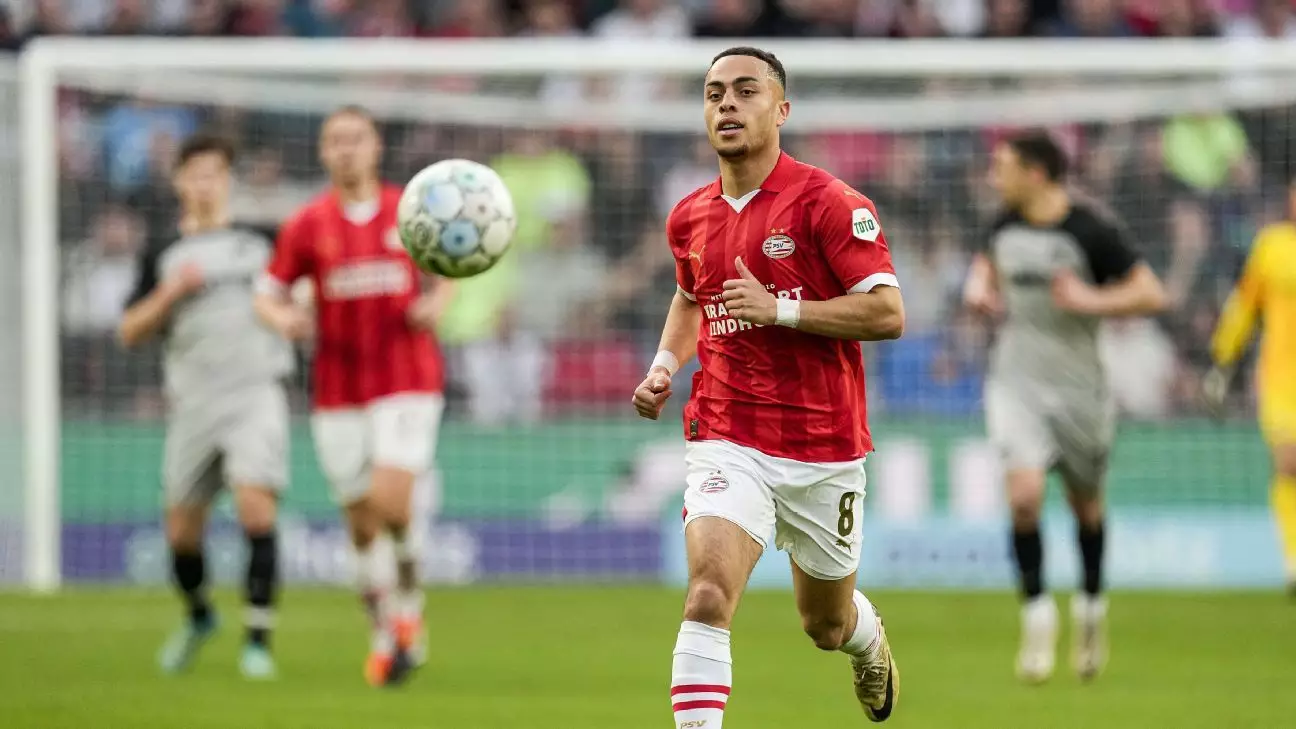Sergiño Dest’s tenure at FC Barcelona serves as a compelling case study of the complexities involved in player-coach dynamics. Dest’s relationship with former coach Xavi Hernández has recently come under scrutiny, as the 23-year-old full-back revealed feelings of disappointment over his limited opportunities and perceived lack of honesty from the coach. This commentary sheds light on the pressures young talents face in elite soccer and how those pressures can shape their career trajectories. When Dest joined Barcelona from Ajax in 2020 under Ronald Koeman’s management, expectations were high. He was seen as a promising talent, yet his narrative took a different turn as Xavi took the reins. The expectations and opportunities that initially surrounded him soon dwindled, which raises questions about player development and coach-player relationships in high-stakes environments.
In conversations with Diario Sport, Dest expressed a palpable sense of frustration regarding Xavi’s assurances. He quoted Xavi as saying, “I am counting on you, don’t read the press,” only to be confronted with the instruction to leave the club shortly afterward. Such inconsistencies can undoubtedly affect a player’s mental state and performance on the field. The commitment from a coach often acts as a lifeline for uncertain players; without it, self-doubt can rapidly take root. Dest’s assertion that he felt limited in his playing style starkly contrasts with the usual expectations placed on full-backs, whose ability to provide attacking support is increasingly valued in modern football. It begs the question: how can coaches balance tactical discipline with the need for players to express their natural abilities?
Dest’s comments also address the broader conversation about player autonomy in a tactical framework. He noted that he felt restricted in a style that did not align with his natural instincts to surge forward and engage in offensive plays. This dilemma is not unique to Dest; many players experience similar friction when coaches impose strict guidelines that limit their creative expression. The consequences of such constraints can be profound, often leading to a decline in performance and confidence. Dest’s lack of alignment with Xavi’s philosophy contributed to a loss of vigor that had initially characterized his game, indicative of how context and coaching philosophy are vital for a player’s success.
After his brief stint at Barcelona, Dest turned to European leagues for opportunities, most notably spending time with AC Milan and returning to PSV Eindhoven. The move represents not only a physical journey across borders but also one of personal growth and ambition. Now, with his focus on recovering from an ACL injury, he is setting his sights on future ambitions. His comments about wanting another chance in one of Europe’s top leagues signal a resilience and undeterred ambition that many young professionals should strive for.
Dest is clearly is optimistic about his recovery and future prospects. He acknowledges the support he currently receives at PSV but equally emphasizes his ambition to reach new heights. The drive he expresses to return to one of Europe’s elite leagues indicates an athlete unwilling to settle for mediocrity. The willingness to confront past grievances with transparency could serve to motivate him further as he rebuilds his career.
As Dest navigates this challenging phase, it becomes apparent that his journey encapsulates a wealth of lessons on the unpredictability of sports careers, the importance of open communication between players and coaches, and the adaptability needed to thrive in competitive environments. His candid reflections on the past ultimately pave the way for a future defined by resilience and aspiration, even as he continues to confront the hurdles that lie ahead.

